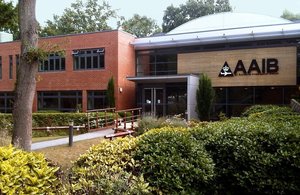Brand new pension scheme launches in Great Britain
Collective Defined Contribution pension schemes, or CDCs for short, will offer an alternative to the UK’s two primary pension scheme models, Defined Contribution (DC) and Defined Benefit (DB).
CDCs have the potential to provide improved retirement returns for savers, with more predictable costs for employers. Both employers and employees contribute to a collective fund from which individual retirement incomes are drawn, with trustees responsible for oversight to ensure schemes are viable and can meet their legal requirements and commitments to members.
Minister for Pensions, Guy Opperman, said:
CDC schemes have the potential to transform the UK pensions landscape.
We have seen the positive effect of these schemes in other countries and it is abundantly clear that, when well designed and well run, they have the potential to provide a better retirement outcome for members, and can be resilient to market shocks.
I have no doubt that millions of pension savers will benefit from CDCs in the years to come.
The new schemes were made possible following the passage last year of the landmark Pension Schemes Act 2021.
Regulations currently provide for single or connected employer CDC schemes.
Some parties have already expressed an interest in expanding CDC models, including multi-employer CDC schemes, as well as the potential for CDC schemes which offer “decumulation only” – when pension savings are converted to retirement income.
Nigel Peaple, Director Policy & Advocacy, PLSA, said:
The PLSA supports innovation within the pensions sector where it improves people’s retirements. CDC blends some of the desirable elements of Defined Benefit (DB), such as clearer target outcomes for the saver, and of Defined Contribution (DC) schemes, such as predictable contributions for the employer and member. By pooling longevity risk and the ability to invest money over a longer period, CDC has the potential to provide new and better approaches for benefit provision.
There are, of course, challenges, including how to ensure savers understand the variability of benefits, and ensuring new models can deliver in practice once reserving and regulation is in place. Nevertheless, we are confident that this ambitious proposal will provide the incentive and momentum to overcome them.
The DWP plans to consult later this year on a package of prospective design principles and approaches to accommodate new types of CDC schemes. This will bring the potential benefits to more savers in the UK, while also capitalising on the enthusiasm shown for innovation in this area.
CDC authorisation and ongoing supervision will be administered by the Pensions Regulator who have produced detailed practical support for schemes through operational guidance and a Code of Practice.
Media enquiries for this press release:
Follow DWP on:

